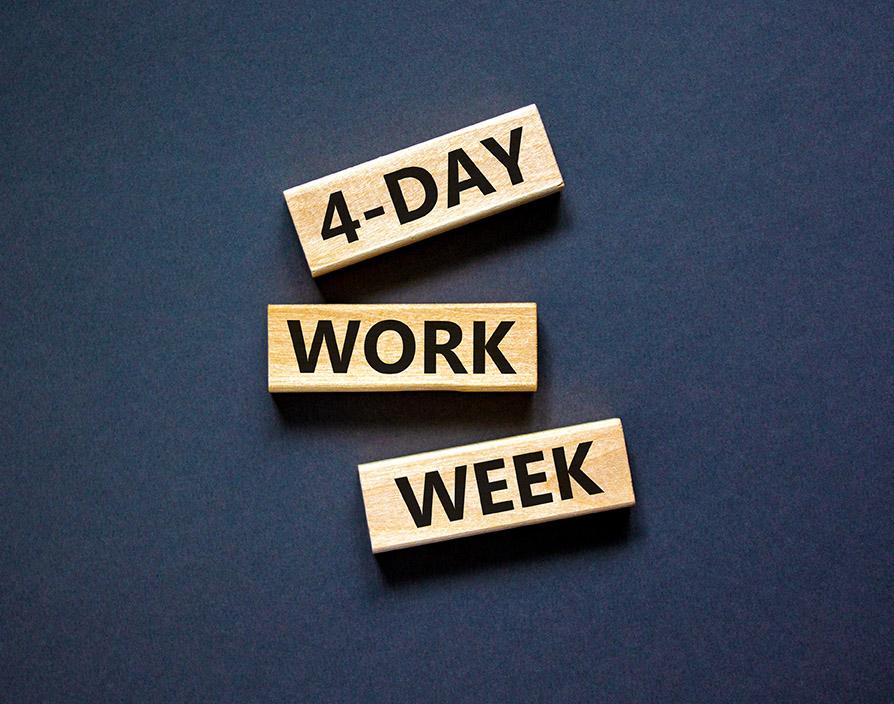There have already been successful trials of the scheme in Norway, Scotland and Australia. Generally, there have been mixed reactions to the schemes wherever they go, with none coming out more strongly against than people like me – CEOs and business leaders.
As it happens, I don’t think four-day work weeks are the solution to the problems we see in modern workforces. But I do think schemes like this can go some way towards addressing the challenges faced by HR and leadership teams.
Challenge #1: Work-life balance
We all carry our work with us everywhere we go. The tiny little, pocket sized dictators we call our phones bring us closer together (to each other and cat memes) but also mean we can never get away from our work emails.
Of course, it’s not just phones, with remote or hybrid working many of us literally have an office in our homes. This means that it’s really hard to get the work-life separation that we all need.
A four-day work week solves a lot of these problems. Giving your team an extra day off to relax, recharge and get away from their daily grind can really help to restore the balance so many of us are lacking. Spending more time with family and friends is great for our mental health, wellbeing, and in turn our productivity.
Studies show that those with better work-life balance enjoy their jobs more AND are more productive. Common sense says that working fewer hours will result in less output, but the trials have shown that this isn’t actually the case.
Challenge #2: Command and control leadership
Our current ways of working were designed for Victorian factories in the industrial revolution. Although we may still love period dramas (as the continued popularity of Bridgerton shows!) we don’t all love the rigid work structures.
Clocking in and out at specific times at specific places takes its toll on all of us. We’re all humans and neuroscience shows us that freedom is a really important part of what makes us happy.
It’s easy to see how a four-day work week can give us all respite from the rigidity of the traditional nine-to-five schedule. It means that for one day a week we can get out in nature, spend more time with our kids, and enjoy our hobbies.
Challenge #3: Employee voice
If you’ve been paying any attention to the news at all, you’ll have noticed that employees around the world have been demanding a voice. The cost of living is rising around the world, and in many places working conditions are getting worse not better. This has led to more unionisation and more strikes.
In other organisations, we can see this tendency through the Great Resignation, with people leaving their jobs more frequently than before. All these behaviours are really about getting more control over the workplace.
In this light, working fewer hours for the same pay can seem like a great fix. While not costing organisations extra money, they’re able to offer a great perk. Plus, it can really help people feel like they’re gaining more control over their working lives.
Challenge #4: Climate crisis
In the UK we’ve all been enjoying a lovely warm summer. But the truth of the matter is that the climate crisis is having a huge impact on our work lives AND that of our employees. Most people understand that as well as individual actions, organisations and businesses of every size also have a role to play.
With this in mind. ESG is becoming an increasingly important topic of conversation. Many people are now factoring this into their decision making when it comes to where they want to work. This means factoring in a lot of policies your organisation might have which impacts the environment.
Believe it or not, the four-day work week can actually have a positive impact on the environment. In her book This Changes Everything, Naomi Klein shows how the four-day work week promotes green behaviours. This may include spending more time on low impact hobbies such as cycling or hiking, cooking food from scratch, and even gardening or keeping backyard chickens all of which help save CO2.
What are the challenges of the four day week?
So far I’ve been pretty positive about the four-day work week. I think there are a lot of benefits from a reduced schedule. But here’s the catch. I think the four-day work week is only a temporary solution, a sticking plaster of the challenges we currently face. What we need isn’t to cram our current problems into less time. We need to revolutionise the way we work completely!
So, what’s the solution?
Jess Heagren from That Works For Me (a flexible working platform matching forward thinking businesses with people looking for flexible work) says: “The problem with a four-day week is that it assumes we all have the same needs. We know this not to be true – the needs of parents with a young family for example are very different to a fifty-five year old caring for her elderly mother or a twenty year old who frequently practices yoga for her mental health. In fact the four-day week applies an additional layer of rigidity for people that actually need flexibility. In order to do the best by our people for their health, their families and their overall wellbeing, we should be finding out what works for them, then over-laying our customers’ needs and adapting accordingly. There is a talent war going on out there at the minute – and flexibility is critical to being on the winning side.”
In my mind, the only true solution to these challenges is real flexibility. For many people, working four days isn’t going to work. For example, if you have kids like me, it might be more useful to work five shorter days and then be around to do the school run. Giving your team the chance to design a work-week that works for them is really going to be key when it comes to overcoming the challenges our current ways of working are facing.
Don’t get me wrong, I love the concept of a four-day work week, I just don’t think it fixes the fundamental structures that are holding back organisations and their people.
Share via:


















































